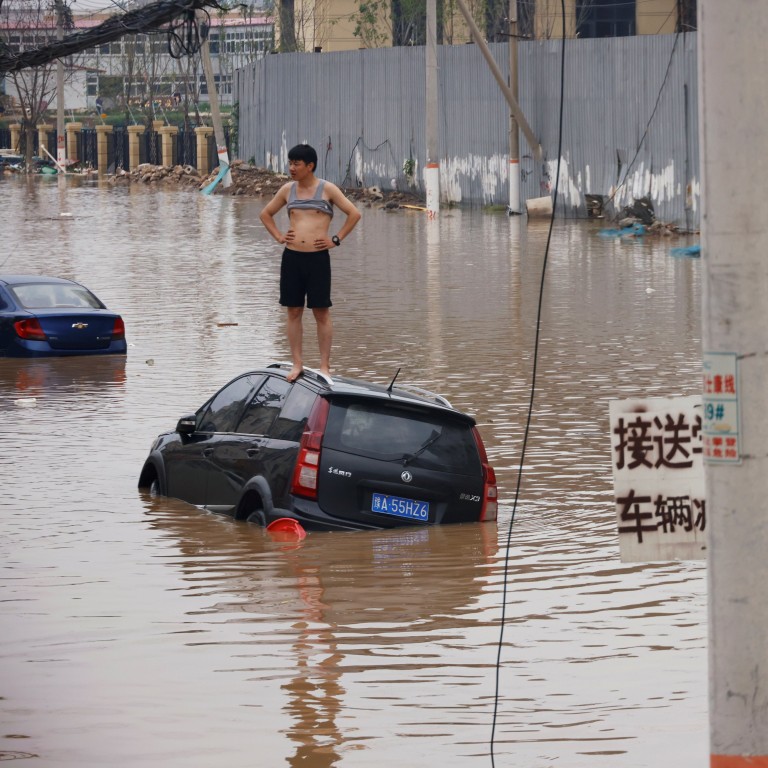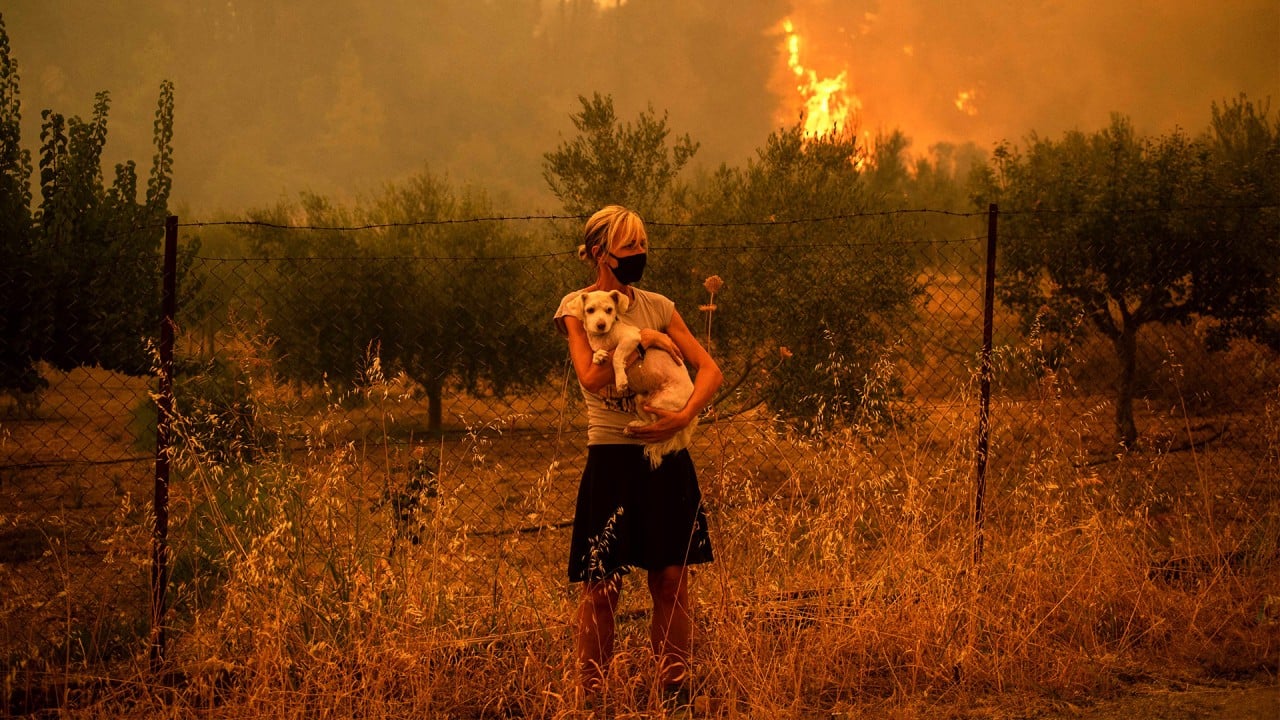
‘Code red’ climate emergency: alarming complacency endures over tackling the crisis
- With fewer than 100 days until the UN climate summit, there is still a shocking disconnect between the urgent action needed to keep us from catastrophe and the middle-class ignorance of the problem at hand
She listed “micro-steps” people can consider as we strive towards net zero carbon emissions by 2050: “Did you know [ …] you don’t really need to rinse your dishes before they go into the dishwasher?” Asked if she planned to exchange her diesel car for an electric one, she said: “I don’t fancy it just yet.”
Opposition environment secretary Luke Pollard was quick to pounce: “The planet is on fire and we are living in a climate and ecological emergency. If the government’s best answer is rinsing dishes, we are in serious trouble.”
But Stratton reflects accurately the alarming disconnect between the urgent global action needed to prevent a descent into a hothouse “hell on Earth”, and the middle-class ignorance and complacency that allows many to think that tinkering around the edges of our comfortable lives is enough.
UN Secretary General Antonio Guterres called the IPCC report “a code red for humanity”, warning there was “no time for delay and no room for excuses”. The report called for “immediate, rapid and large-scale reductions in greenhouse gas emissions” if runaway, irreversible climate shifts are not to make life on Earth unliveable.
Oceans are acidifying, and warming faster than at any point in the past 11,000 years; there is more carbon dioxide (CO2) in the atmosphere than in the past 2 million years, and more methane than in 800,000 years.
The report provides graphic evidence of the catastrophic implications – rising heatwave exposure, disruption of water supplies and spreading droughts, threats to power supplies, collapses in crop yields and significant habitat degradation.
In Asia, it foresees more (and more severe) marine heatwaves, more ferocious fire seasons, more rain and flooding from monsoons and typhoons. Sea levels will rise faster than anywhere else.
In Siberia, Russia reported fires across Yakutia stretching almost 170 sq km – nearly the size of Guangdong province – and Nasa reported smoke from Siberian wildfires over the North Pole for the first time in recorded history.
Climate deals to achieve net zero carbon emissions? Possible but very hard
But precious few countries have fleshed out these grand commitments, few leaders are wrestling with the changes needed, and almost none has begun preparing their communities.
Nor are other countries much better prepared to decarbonise our lifestyles. There can be no solution without China, which accounts for over a quarter of the world’s CO2 emissions and around half of global coal consumption.
Many have groaned at the huge cost of getting to net-zero carbon – estimated by the Energy Transitions Commission at US$1 trillion-US$2 trillion a year. Yet fossil fuel subsidies worldwide already amount to about 6.5 per cent of the global economy – more than US$5 trillion.
Simply agreeing to eliminate these subsidies and shifting those resources into tackling global warming would go a long way towards reaching net zero carbon.
And what about the cost of not getting to net zero carbon? Insurance group SwissRe estimates that rising global temperatures will cut global economic output by as much as US$23 trillion, cutting 11-14 per cent off global GDP by 2050.
There are fewer than 100 days to COP26. The IPCC report has provided all the dire information we need. Let us pray that Stratton and her dishwasher do not distract our procrastinating global leaders from what is undoubtedly the greatest political challenge our governments have ever faced.
David Dodwell researches and writes about global, regional and Hong Kong challenges from a Hong Kong point of view





